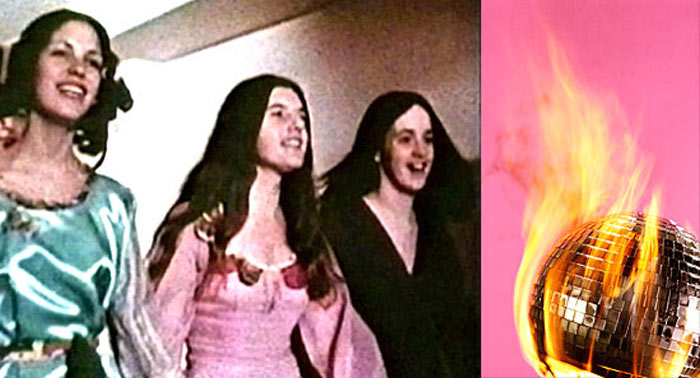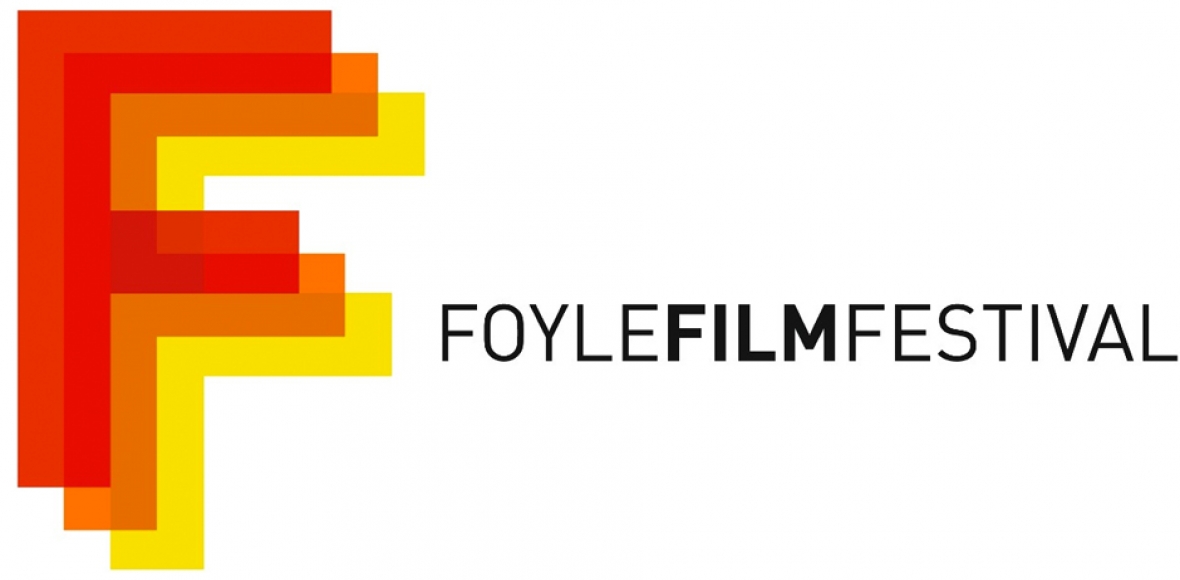Old Age Kicks
Hanging on the walls of Alessandro Negrini’s living room in Derry there are posters of Casablanca, Charlie Chaplin, Breakfast at Tiffany's, Alda Merini smoking a cigarette and Italian directors as Rossellini, De Sica and Fellini. “Everything started for fun. As I always say, I'm a movie director by mistake, in the sense that I wanted to do something else in my life, like being an hairdresser,” he said. Paradiso, his last documentary, shot in Derry, will be screened today at the Arcipelago Rome Film Festival.
Alessandro recalls that his grandfather used to run a cinema in a small town in Italy, which turned into a ball room every Saturday night. “Perhaps it was in my genes that sooner or later I would have become a director...or a ticket collector. But I realized that being a director paid more,” he jokes.
He claims to be inspired by a friend of his, the Norwegian director Knut Eric Yensen, and by the movies of Federico Fellini: “I worship him though it would be even outrageous to say that he's my reference point.” However, his mother has been his true guiding star. When he was a child, she used to bring him to the ball rooms: “Paradiso is also a tribute to a world that is vanishing, the world of the ball rooms, where I grew up,” he says. “My mother thought me to never get old, which doesn't mean not having wrinkles, but not being disenchanted.”
“When I grew up I was convinced that I wanted to be a poet.” He also went to live in Paris to write poems for two years.
Then he read a quote by Benedetto Croce: “Until the age of 18 everybody writes poems. From 18 years on two categories remain: the poets and the idiots”. “I've always been afraid to belong to the second one, so I stopped,” he jokes. “But I still write them for myself. Instead of going to the shrink, a notebook costs 99p, the analyst costs 99£, you know... “
After having produced a couple of short movies in Italy, in 2001 he moved to Derry where he shot “The House of Phrases”, with a budget of only £500: “We used a chair with wheels instead of the track.” The film won the Best Online International Documentary award at the 14th Foyle Film festival in Derry, the Underground Film Festival in Dublin and the Havana Film Festival in Cuba.
His second short movie shot in Ireland, Lies and Waves, tells the story of the friendship between an old man who's never seen the sea - as his grandfather, he says - and a child who has always told lies. “I've always been fascinated by people who live off-hour, who follow their inner clock,” he says.
Between 2006 and 2009 Alessandro worked on Paradiso. The movie tells the story of a musician, Roy Arbucke, who decides to reunite his former Showband, The Signetts, and his formers musicians, now in their seventies, organizing a major dance night where Protestants and Catholics could finally dance
together again in The Fountain, a Protestant ghetto in Derry.
“Roy is a poet, a person able to interpret that reality raising its level of interpretation,” he says. “However, I found out that is much easier to bring together Catholics and Protestants than the musicians: generally they are all primadonna’s.”
The movie was then selected for the Monterrey International Film Festival in Mexico and won the Slow Film Festival in Hungary. “This gave me confidence. I thought that the film had an international appeal, not that it could win.” Afterwards, the movie won the Best Documentary Award in Bangladesh; the Audience Award in Germany; the Best Documentary Award in India and was selected in many other international festivals.
At the beginning the problem was to convince someone to finance it. “Nobody gave a damn of this ghetto full of old Protestants,” says Alessandro. “When I discovered it at the time, they even used to close the gate with a chain.” However, “I was so lucky to have probably one of the best producers around, Margo Harkin, of Besom Productions, which produced Waive Raiders, to name one,” says Alessandro. The movie was eventually financed by the BBC. The director of photography, Odd Geir Saeter, worked in Inland Empire, David Lynch's last movie.
The gamble of the movie was that neither Alessandro nor Margo knew the outcome of the ball night. Until the eve of the ball there were 40 tickets sold out of 300 and it looked like the night was going to be a flop. “If it was so I would have shot the disappointment of a dream that never came true. On the contrary there were 300 people,” he commented.
A movie about Derry means a movie about the troubles, by definition. But Alessandro didn't want a movie about the troubles: “I was fed up with them as many other people are. The troubles are there but it's not a movie about the troubles. They are the expedient to talk about a culture where people live in fear of each other and with the need of an enemy. The enemy gives them an identity.”
Alessandro has an insight of the city which gave the movie a sort of universal and critical touch, as he observes: “The movie is not much about Derry but rather about a reality that could be translated in Mexico as in any other place in the world. I think that Derry owns the appeal of places that have just abandoned a conflict, but it is spoiling this energy. It could really revive, instead it is simply recreating the old. It's like if it was in love with its own chains.”

A walk in the Bogside: you're now entering Free Derry
A visit to Derry means also a visit to one of the hubs of the history of Northern Ireland. I used to live in Derry some years ago and in the pubs, after a few drinks, I would often hear stories from locals about their first-hand experiences during the “troubles”.

xanadu
The exhibition Xanadu, at the Context Gallery of Londonderry from the 19th of October until the 24th of November, is a four-channel epic video installation in which the New Yorker artist Robert Boyd has been working for years. The artist assembled different archivial footage gathered from news broadcasts, internet, documentaries, cartoons and films in four compositions

Memory and Conscience at the Foyle Film Festival
Three American filmmakers at the Foyle Film Festival this year raise questions about memory and conscience. The Foyle Film Festival has been taking place every year in Londonderry since 1987 and is regarded as one of the most important events in Northern Ireland. It offers a range of contemporary Irish and European movies and documentaries, workshops, meetings and debates.